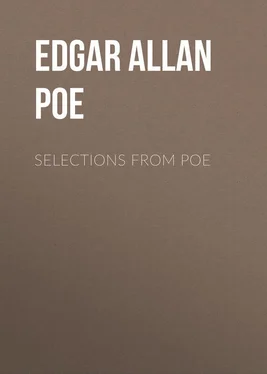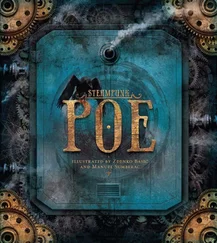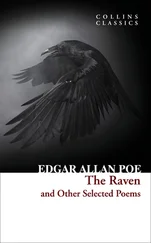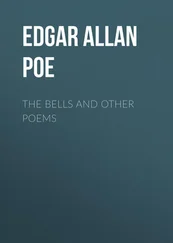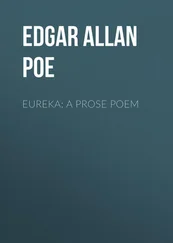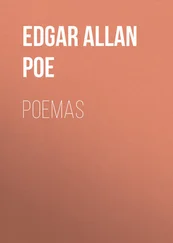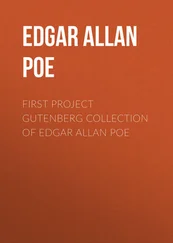Edgar Poe - Selections from Poe
Здесь есть возможность читать онлайн «Edgar Poe - Selections from Poe» — ознакомительный отрывок электронной книги совершенно бесплатно, а после прочтения отрывка купить полную версию. В некоторых случаях можно слушать аудио, скачать через торрент в формате fb2 и присутствует краткое содержание. Жанр: literature_19, foreign_antique, foreign_prose, на английском языке. Описание произведения, (предисловие) а так же отзывы посетителей доступны на портале библиотеки ЛибКат.
- Название:Selections from Poe
- Автор:
- Жанр:
- Год:неизвестен
- ISBN:нет данных
- Рейтинг книги:3 / 5. Голосов: 1
-
Избранное:Добавить в избранное
- Отзывы:
-
Ваша оценка:
- 60
- 1
- 2
- 3
- 4
- 5
Selections from Poe: краткое содержание, описание и аннотация
Предлагаем к чтению аннотацию, описание, краткое содержание или предисловие (зависит от того, что написал сам автор книги «Selections from Poe»). Если вы не нашли необходимую информацию о книге — напишите в комментариях, мы постараемся отыскать её.
Selections from Poe — читать онлайн ознакомительный отрывок
Ниже представлен текст книги, разбитый по страницам. Система сохранения места последней прочитанной страницы, позволяет с удобством читать онлайн бесплатно книгу «Selections from Poe», без необходимости каждый раз заново искать на чём Вы остановились. Поставьте закладку, и сможете в любой момент перейти на страницу, на которой закончили чтение.
Интервал:
Закладка:
LITERARY WORK
Poe's first literary ventures were in verse. The early volumes, showing strongly the influence of Byron and Moore, were productions of small merit but large promise. Their author was soon to become one of the most original of poets, his later work being unique, with a strangely individual, "Poe" atmosphere that no other writer has ever been able successfully to imitate. His verse is individual in theme, treatment, and structure, all of which harmonize with his conscious theory of poetic art. His theory is briefly this: It is not the function of poetry to teach either truth or morals, but to gratify through novel forms "the thirst for supernal beauty"; its proper effect is to "excite, by elevating, the soul." The highest beauty has always some admixture of sadness, the most poetical of all themes being the death of a beautiful woman. Moreover, the pleasure derived from the contemplation of this higher beauty should be indefinite; that is, true poetic feeling is not the result of coherent narrative or clear pictures or fine moral sentiment, but consists in vague, exalted emotion. Music, of all the arts, produces the vaguest and most "indefinite" pleasure; consequently verse forms should be chosen with the greatest possible attention to musical effect. Poetry must be purely a matter of feeling. "Its sole arbiter is Taste. With the Intellect or with the Conscience it has only collateral relations."
This explanation is necessary, because the stock criticism of Poe's poetry condemns it as vague, indefinite, and devoid of thought or ethical content. These are precisely its limitations, but hardly its faults, since the poet attained with marvelous art the very effects he desired. The themes of nearly all the poems are death, ruin, regret, or failure; the verse is original in form, and among the most musical in the language, full of a haunting, almost magical melody. Mystery, symbolism, shadowy suggestion, fugitive thought, elusive beauty, beings that are mere insubstantial abstractions – these are the characteristics, but designedly so, of Poe's poetry. A poem to him was simply a crystallized mood, and it is futile for his readers to apply any other test. Yet the influence of this verse has been wide and important, extending to most lyric poets of the last half-century, including such masters as Rossetti and Swinburne.
"To Helen," a poem of three brief stanzas, is Poe's first really notable production; it is an exquisite tribute of his reverent devotion to his boyhood friend, Mrs. Stannard, portraying her as a classic embodiment of beauty. "Israfel" is a lyric of aspiration of rare power and rapture, worthy of Shelley, and is withal the most spontaneous, simple, and genuinely human poem Poe ever wrote. "The Haunted Palace," one of the finest of his poems, is an unequaled allegory of the wreck and ruin of sovereign reason, which to be fully appreciated should be read in its somber setting, "The Fall of the House of Usher." Less attractive is "The Conqueror Worm," with its repulsive imagery, but this "tragedy 'Man,'" with the universe as a theater, moving to the "music of the spheres," and "horror the soul of the plot," is undeniably powerful and intensely terrible.
"The Raven," published in 1845, attained immediately a world-wide celebrity, and rivals in fame and popularity any lyric ever written. It is the most elaborate treatment of Poe's favorite theme, the death of a beautiful woman. The reveries of a bereaved lover, alone in his library at midnight in "the bleak December," vainly seeking to forget his sorrow for the "lost Lenore," are interrupted by a tapping, as of some one desirous to enter. After a time, he admits a "stately raven" and seeks to beguile his sad fancy by putting questions to the bird, whose one reply is "Nevermore," and this constitutes the refrain of the poem. Impelled by an instinct of self-torture, the lover asks whether he shall have "respite" from the painful memories of "Lenore," here or hereafter, and finally whether in the "distant Aidenn" he and his love shall be reunited; to all of which the raven returns his one answer. Driven to frenzy, the lover implores the bird, "Take thy beak from out my heart, and take thy form from off my door," only to learn that the shadow will be lifted "nevermore." The raven is, in the poet's own words, "emblematical of Mournful and Never-Ending Remembrance."
"Ulalume" has been commonly (though not always) regarded as a mere experiment in verbal ingenuity, meaningless melody, or "the insanity of versification," as a distinguished American critic has called it. Such a judgment is a mark of inability to understand Poe's most characteristic work, for in truth "Ulalume" is the extreme expression at once of his critical theory and of his peculiar genius as a poet. It was published in December of the same year in which Virginia died in January. The poet's condition has already been described; "Ulalume" is a marvelous expression of his mood at this time. It depicts a soul worn out by long suffering, groping for courage and hope, only to return again to "the door of a legended tomb." It is true the movement is slow, impeded by the frequent repetitions, but so the wearied mind, after nervous exhaustion, is "palsied and sere." There is no appeal to the intellect, but this is characteristic of Poe and appropriate to a mind numbed by protracted suffering. It is this mood of wearied, benumbed, discouraged, hopeless hope, feebly seeking for the "Lethean peace of the skies" only to find the mind inevitably reverting to the "lost Ulalume," that finds expression. There is no definite thought, because only the communication of feeling is intended; there is no distinct setting, because the whole action is spiritual; "the dim lake" and "dark tarn of Auber," "the ghoul-haunted woodland of Weir," "the alley Titanic of cypress," are the grief-stricken and fear-haunted places of the poet's own darkened mind, while the ashen skies of "the lonesome October" are significant enough of this "most immemorial year." The poem is a monody of nerveless, exhausted grief. As such it must be read to be appreciated, as such it must be judged, and so appreciated and so judged it is absolutely unique and incomparable.
About a year later came "The Bells," wonderful for the music of its verse, and the finest onomatopoetic poem in the language. Two days after Poe's death appeared "Annabel Lee," a simple, sincere, and beautiful ballad, a tribute to his dead wife. Last of all was printed the brief "Eldorado," a fitting death-song for Poe, in which a gallant knight sets out, "singing a song," "in search of Eldorado," only to learn when youth and strength are gone that he must seek his goal "down the Valley of the Shadow."
The tales, like the poems, are a real contribution to the world's literature, but more strikingly so, since the type itself is original. Poe, Hawthorne, and Irving are distinctly the pioneers in the production of the modern short story, and neither has been surpassed on his own ground; but Poe has been vastly the greater influence in foreign countries, especially in France. Poe formed a new conception of the short story, one which Professor Brander Matthews 4 4 "The Philosophy of the Short-Story," Chapter IV of "Pen and Ink."
has treated formally and explicitly as a distinct literary form, different from the story that is merely short. Without calling it a distinct form, Poe implied the idea in a review of Hawthorne's "Twice-Told Tales":
The ordinary novel is objectionable from its length… As it cannot be read at one sitting, it deprives itself, of course, of the immense force derivable from totality … In the brief tale, however, the author is enabled to carry out the fulness of his intention, be it what it may. During the hour of perusal, the soul of the reader is at the writer's control…
A skillful literary artist has constructed a tale. If wise, he has not fashioned his thoughts to accommodate his incidents; but having conceived with deliberate care a certain unique or single effect to be wrought out, he then invents such incidents – he then combines such events as may best aid him in establishing this preconceived effect. If his very initial sentence tend not to the out-bringing of this effect, then he has failed in his first step. In the whole composition there should be no word written, of which the tendency, direct or indirect, is not to the one preëstablished design.
Читать дальшеИнтервал:
Закладка:
Похожие книги на «Selections from Poe»
Представляем Вашему вниманию похожие книги на «Selections from Poe» списком для выбора. Мы отобрали схожую по названию и смыслу литературу в надежде предоставить читателям больше вариантов отыскать новые, интересные, ещё непрочитанные произведения.
Обсуждение, отзывы о книге «Selections from Poe» и просто собственные мнения читателей. Оставьте ваши комментарии, напишите, что Вы думаете о произведении, его смысле или главных героях. Укажите что конкретно понравилось, а что нет, и почему Вы так считаете.
